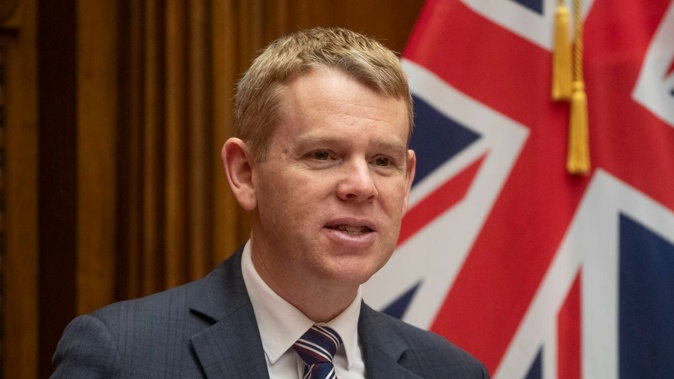
New Zealand’s relationship with China will continue to require careful management, Prime Minister Chris Hipkins said in a speech to the China Business Summit in Auckland.
“As China’s economic influence has grown, the Chinese Government has also become more assertive in its foreign policy.”
In its own words, China had ‘stood up’ and was now asserting its interests globally.
“It’s normal for states to pursue their interests and to use all the tools at their disposal to exert influence regionally and internationally,” he told the summit which is hosted by NZ Inc and the Auckland Business Chamber.
“But as I’ve noted recently, China’s rise and how it seeks to exert that influence is also a major driver of the increasing strategic competition, particularly in our wider home region, the Indo-Pacific.
“Our region is becoming more contested, less predictable, and less secure.”
That poses challenges for small countries like New Zealand that were reliant on the stability and predictability of international rules for our prosperity and security.
“In this increasingly complex global environment, our relationship with China will continue to require careful management.”
Hipkins led a trade mission to China three weeks ago and then headed to Europe for a Nato summit last week.
The Nato visit prompted a scathing response from China’s ambassador, Wang Xiaolong, who called it a war-monger in military bloc and warned against “opening the door to the devil” in the region.
- China Business Summit a chance to "get to grips" with China's evolving market
- Trade Minister ahead of addressing the China Business Summit
Hipkins said New Zealand had been firm and consistent in is commitment to its one China policy, and more recently in the implementation of its Comprehensive Strategic Partnership with China.
“My sense from my visit is that the relationship is in good shape, evidenced by the warm reception I received and the range of outcomes achieved during my visit.”
He said three principles would continue to guide New Zealand’s relationship with China.
“We will continue to engage with China and cooperate in areas where our interests converge.
“Two, we will always act to preserve, protect, and promote our national interests and our values.
“And, three, we will work with partners to advocate for approaches that reflect our interests and values.
“And across all areas, we will engage with China consistently, predictably, and respectfully.”
Without mentioning the outburst by China’s ambassador on New Zealand’s link with Nato, with which New Zealand has a relationship as a partner, Hipkins’ speech addressed partnerships and cooperation with other countries.
He said a small country like New Zealand could not work alone, and it recognised the importance of building partnerships and inclusivity to address global challenges.
“New Zealand has a long and proudly independent foreign policy but, as Foreign Minister [Nanaia] Mahuta said recently, an independent foreign policy does not mean isolation, neutrality, or a fixed pre-determined view of how we will act on a particular issue.
“Nor does it mean ‘going it alone.’”
It was clear that in this complex and interconnected world – one where New Zealand’s geographical remoteness would not shield it –- charting a way forward through many of the most pressing regional and global issues often requires working together with others.
“Where we share a common view with our partners we will act to protect and preserve what is important to us.
“That New Zealand’s approach will often align with that of our most likeminded partners, with whom we share many common interests and values, should not be a surprise.”
That included countries like the United States, the United Kingdom, the European Union, Japan and others.
Australia, in particular, was New Zealand’s only ally and closest partner. It was natural that New Zealand would often have a similar perspective on the sharpening geostrategic environment.
“These common interests and concerns do not mean we will always take the same approach. Sometimes there is tactical strength in a diversity of approaches to achieve the same outcomes.
“But our shared liberal democratic values and respect for human rights and international rules means that we have joined partners like Australia, the United States, and others, to raise concerns about a range of issues including, for example, the human rights situation in Hong Kong and in Xinjiang.”
New Zealand had also joined partners like Malaysia, the Philippines, Viet Nam and others in Southeast Asia in calling for legal and diplomatic frameworks to be the focus for resolving territorial disputes in the South China Sea.
And it was stepping up engagement with India as it expanded its role and interests in the Indo-Pacific region.
“In summary, we are clear-eyed about our interests and our values.
“These include respect for human rights, democracy, the rule of law, environmentalism, disarmament, and a stable and resilient Pacific.
“Where these perspectives are shared with others, we work together. This is at the heart of our independent foreign policy.”
Take your Radio, Podcasts and Music with you








